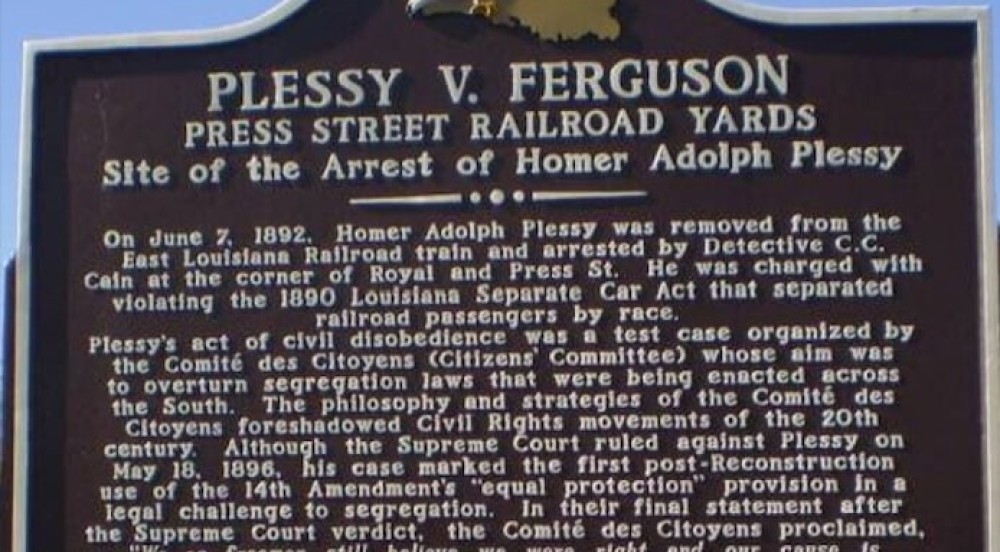Gov. John Bel Edwards of Louisiana posthumously pardoned Homer Plessy more than a hundred years after he was arrested for trying to persuade the courts to overturn a Jim Crow law, the Associated Press reports.
In 1896, the Plessy v Ferguson case went all the to the U.S. Supreme Court and the ruling ushered in a new era of “Jim Crow” that lasted over a half-century. The law of the land became “separate but equal,” forcing Black people into segregated accommodations, schools, housing, theaters, and other public venues.
The pardon ceremony took place near the location where Plessy was arrested in 1892.
Descendents of both Plessy and the judge who handed down his punishment were in attendance.
Keith Plessy, whose great-great-grandfather was Plessy’s cousin (Homer Plessy had no children), said that because of Homer's fight, New Orleans was the cradle of the civil rights movement.
“Hopefully, this will give some relief to generations who have suffered under discriminatory laws,” said Phoebe Ferguson, the judge’s great-great-granddaughter.
According to the report, the state Board of Pardons recommended the pardon on Nov. 12. This is the first pardon under Louisiana’s 2006 Avery Alexander Act, which allows pardons for people who were convicted under laws that were intended to discriminate.
At the time of his arrest, when he was trying to board the whites-only train, Plessy was a 30-year-old shoemaker. As a member of the Citizens Committee, a local civil rights group, he hoped to persuade judges to overturn the unjust law.
In Plessy, Justice Henry Billings Brown wrote for the 7-1 majority: “Legislation is powerless to eradicate racial instincts or to abolish distinctions based upon physical differences.”
Justice John Harlan, the lone dissenter, wrote that he believed the ruling “will, in time, prove to be quite as pernicious as the decision made by this tribunal in the Dred Scott Case.”
Plessy pleaded guilty on Jan. 11, 1897, eight months after the ruling was handed down. He was fined $25 which equals around $3300 in today’s dollars.
In 1925, Plessy passed away with the conviction still on his record and the “separate but equal” doctrine would be enforced until the Supreme Court’s 1954 Brown vs. Board of Education decision.
Keith Plessy said donations collected by the committee paid the fine and other legal costs but Plessy never returned to his trade as a shoemaker. After the ruling, he worked as a laborer, warehouseman, and clerk before becoming a collector for the Black-owned People’s Life Insurance Company.
As EBONY previously reported, since meeting each other in 2004, Keith Plessy and Phoebe Ferguson formed the Plessy & Ferguson Foundation and have worked to place five historical markers honoring Homer Plessy's legacy across New Orleans.













